Dr QU Dongyu, FAO Director-General
31 Jan 2024
World Wetlands Day provides us with an opportunity to celebrate the vital connection between wetlands and human well-being. From mighty inlets, mangroves and mud-flats, to flood-plains, peat bogs, fishponds and rice paddies, wetlands are extraordinary ecosystems. They provide us with freshwater and food, supporting the livelihoods of over one billion people globally.
As reservoirs of biodiversity, wetlands improve water quality, store carbon, and protect against floods and droughts. However, wetlands are declining fast due to human impact, made worse by the climate crisis and increased biodiversity loss, thereby intensifying the water crisis and threatening food security and livelihoods.
In response, FAO works with Members to help farmers, fishers, herders, and forest-dependent people to conserve, sustainably use, and restore wetlands. To produce more with less, and ensure food and water security for all.
To support sustainable inland fisheries and freshwater aquaculture, we promote the integrated management of water resources and inland aquatic ecosystems that also take into consideration environmental impacts.
FAO develops and promotes innovative solutions to restore wetlands, address water quality and reduce pollution caused by agrifood systems, in collaboration with partners and other UN agencies.
We raise awareness on the benefits of multifunctional and value-added roles of paddies with enhanced water use efficiency and water productivity approaches. Through Globally Important Agricultural Heritage Systems (GIAHS), such as the Hani Rice Terraces of China and the Kuttanad Wetland Ecosystem in India.
FAO works together with local communities and Indigenous Peoples, and with partners such as the Ramsar Convention, to protect wetlands and those who depend on them by promoting inclusive and sustainable agricultural practices based on science, combined with local knowledge, traditions, and culture.
We need healthy wetlands for our planet, and for our well-being. Let us continue to join efforts to protect, conserve and restore these precious ecosystems by scaling-up and investing in the transformation of agrifood systems to make them more efficient, more inclusive, more resilient, and more sustainable, For better production, better nutrition, a better environment, and a better life, leaving no one behind.


